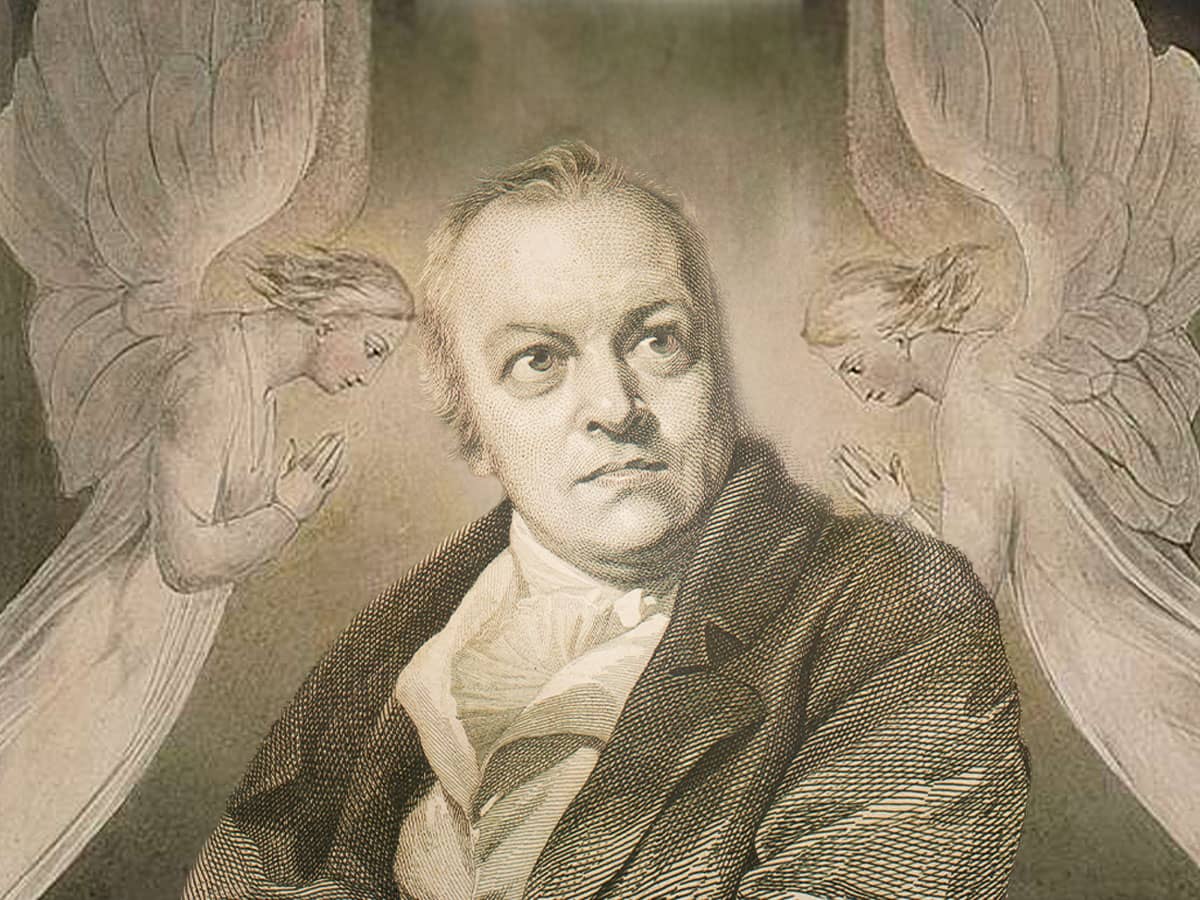Born in Stockholm in the winter of 1688, Swedenborg lived a life of privilege. His father, a prominent Lutheran Bishop, had ties that later allowed young Emanuel to develop a close association with Charles XII, King of Sweden. For over thirty years, from the time he was 27 until he was 58, Swedenborg was Special Assessor to the Royal College of Mines, a sober and scientific pursuit.
But while he might have stayed in this respected position until he retired, in 1746 Swedenborg suddenly resigned. “My sole object in tendering my resignation,” he wrote, “was that I might have more leisure to devote to the new office to which the Lord had called me.”
Three years earlier Swedenborg had been in Amsterdam on an October morning when "such dizziness...overcame me that I felt close to death." He felt a roaring wind pick him up; a hand clutched his, and he saw Christ.
"He showed me the face of my spirit,” he wrote toward the end of his life, “and thus led me into the world of the spirits and allowed me to see heaven and its wonders, and at the same time to see hell as well, and also to speak with angels and spirits, and this has gone on continually for twenty-seven years."
Swedenborg’s connection with the spiritual world gave him the gift of clairvoyance. One night, he was at a party in the town of Göteborg when he “saw” a raging fire burning in Stockholm, almost three hundred miles away. The next day, he was able to confirm that his vision of the fire had indeed been true.
(Not all of Swedenborg’s predictions turned out to be accurate, including his assertion that a race of people live on the moon, who speak through their stomachs, making a sound like belching.)
Swedenborg came to define his entire life as one lived among the angels. And yet he also continued to find acceptance among his peers.
“I am a Fellow and Member, by invitation, of the Royal Academy of Sciences in Stockholm,” Swedenborg wrote, “but I have never sought admission into any literary society in any other place, because I am in an angelic society, where such things as relate to heaven and the soul are the only subjects of discourse, while in literary societies the world and the body form the only subjects of discussion...
"Moreover, all the bishops of my native country, who are ten in number, and also that sixteen senators and the rest of those highest in office, entertain feelings of affection for me; from their affection they honor me, and I live with them on terms of familiarity, as a friend among friends; the reason of which is that they know I am in company with angels. Even the King and the Queen, and three princes, their sons, show me great favour...
What was Swedenborg's vision of heaven and hell? Read more on page 2 >>
| _Related Features | |
|
|
|
 |
“From that time I began to print and publish the various arcana that were seen by me or revealed to me, concerning heaven and hell, the state of man after death, the true worship of God, the spiritual sense of the Word, besides other most important matters conducive to salvation and wisdom. The only reason of my journeys abroad has been the desire of making myself useful and of making known the arcana that were entrusted to me. Moreover, I have as much of this world's wealth as I need, and I neither seek nor wish for more.”
Swedenborg believed that God can only be revealed through man’s humanity, and that both men and women are totally free to create their own lives. They can choose lives devoted to doing good and loving God, or lives of selfishness and evil. However, by doing so, they are choosing either heaven or hell after death, and the choice is final.
Swedenborg’s view of heaven is of a rather earthly place populated by angels, who are former humans complete with bodies, clothing, and homes. They even marry and have occupations. However, they have no sense of time, only of states of faith, love, and intelligence. There they progress to higher states of consciousness. All people, not just Christians, are accepted into heaven, where the angels instruct them in the ways of the Lord. Interestingly for a lifelong bachelor, Swedenborg had an idealized vision of marriage in heaven. Married love, he believed, bonds two minds into one, and each couple becomes one angel.
Swedenborg’s vision of hell is equally fascinating—much like the evil Gotham City in a Batman movie, with bestial lairs, filthy streets, tumbledown homes, and brothels. The residents of hell continue their evil, selfish ways, burning in a fire of their own hatred. There is no devil in charge.
For all these revelations Swedenborg gave credit to his angelic visitors. “I have seen a thousand times that angels are human forms, or men, for I have conversed with them as man to man, sometimes with one alone, sometimes with many in company.” Like the scientist he was, Swedenborg recorded his visions down to the last detail in numerous books, included the most famous, Heaven and Hell.
Swedenborg’s vision influenced millions. His spiritual writing exerted tremendous influence on writers and artists, including Emerson, Goethe, Dostoevsky, and William Blake. His thinking also had an impact on religious leaders like Joseph Smith, founder of the Mormon Church. Not long after his death, a group of Swedenborg’s devoted followers founded the New Jerusalem Church, and later, The Swedenborg Society, which still exists today. The author of over 50 works, Swedenborg’s books have been translated into thirty languages.
| _Related Features | |
|
|
|
 |

